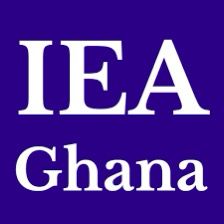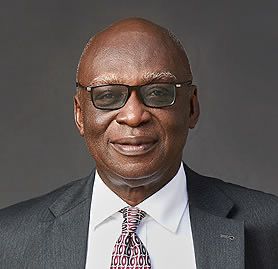The debate over Ghana’s first mining lease for the extraction of lithium has drawn in participation from two legal and mining specialists, Mr. Fui Tsikata and Mr. Kofi Ansah.

Legal and mining experts jointly published a paper on Monday, December 11, 2023, in which they criticized the analysis conducted by the Institute Economic Affairs (IEA), Professor Ransford Gyampo of the University of Ghana’s Political Science Department, and Mrs. Sophia Akuffo, the former Chief Justice, for making “the error of promoting form over substance.”
A former lecturer at the University of Ghana Faculty of Law, Mr. Fui Tsikata, is a renowned lawyer with over forty (40) years of experience in the mining industry. On the other hand, Mr. Kofi Ansah served as President Rawlings’ first Chief Executive Officer of the Minerals Commission from 1993 to 1999.
Despite pointing out two areas in which the government could have improved the lease, the two stated that the “widely-publicized criticisms are patently wrong” and that they are the result of an ignorance of the rules and regulations governing the mining business.
The government of Ghana granted a mining lease to Barari DV Ltd., a subsidiary of Atlantic Lithium Ltd., in October of this year so that the company could utilize lithium in Ghana. The Minister emphasized that Ghana will never export lithium in its raw form during the brief ceremony to commemorate the lease’s signing, calling it the best deal for the country.
The government of Ghana granted a mining lease to Barari DV Ltd., a subsidiary of Atlantic Lithium Ltd., in October of this year so that the company could utilize lithium in Ghana. The Minister emphasized that Ghana will never export lithium in its raw form during the brief ceremony to commemorate the lease’s signing, calling it the best deal for the country.
But several members of the public, most notably the IEA and former Chief Justice Prof. Gyampo, criticized the arrangement.

The Minerals Commission’s Chief Executive Officer, Mr. Martin Ayisi, the Minerals Income Investment Fund’s (MIIF) Chief Executive Officer, Nana Yaw Koranteng, and the Minister for Lands and Natural Resources, Hon. Samuel A. Jinapor, MP, took turns explaining to the public the procedures that led to the lease’s grant as well as its terms during a press briefing on Monday, December 11, 2023.
They maintained that the following benefits—which include the building of a refinery and the domestic sale of byproducts—are unprecedented and in Ghana’s best interests: the ten percent (10%) royalty rate, the thirteen percent (13%) free carried interest, the six percent (6%) interest secured by MIIF, and the additional three percent (3%) in the Australian listed holding company.
The Ministry and the Commission claim that the free-carried interest secured and the royalty rate are among the highest in the world. However, the company is still required to list on the Ghana Stock Exchange in order to increase Ghanaian participation to a minimum of thirty percent (30%).
Thoughts on the lease have persisted despite these justifications. The two experts think that the current state of affairs is such that a large portion of the commentary on the lease is misinformed and stems from a lack of knowledge about the mining sector.
“There are fundamental flaws in the methods used by the IEA and Professor Gyampo in computing revenues and the allocation of potential direct monetary benefits from the project that undermine the conclusions they seek to draw,” they claim.
It is a mistake to prioritize form over substance in the IEA and Ms. Akuffo’s argument that “joint venture agreements or “service contracts” are better than leases or concession contracts.”
They clarified that the project generates gross revenue of US$688 million annually, not the US$24 billion that Prof. Gyampo and the IEA had claimed. Furthermore, they clarified that the government would receive a minimum of 51 percent (51%) of the project’s revenue, rather than the 13 percent (13%) proposed by the IEA and Prof. Gyampo, when all the negotiated terms are taken into account.
According to them, the government’s earnings from mining operations are at their highest point ever, with typical operations typically providing an average of forty-five percent (45%) or less.
The two experts characterized requests for a joint venture made by the former Chief Justice and the IEA as misinterpretations of the sector. Regarding the argument pertaining to “joint ventures” and “service contracts,” it is evidently incorrect to state explicitly that they are superior to leases. The proposal doesn’t even try to compare financial terms in a way that is meaningful.
Spodumene concentrate, the beneficiated lithium ore, is the main product. They stated that they thought the government could tighten the language regarding the possibility of setting up a plant to process the concentrate from the mine and improve the pricing of this product.
They do, however, think that the government negotiated this agreement very well.
The government performed exceptionally well in obtaining the negotiated terms, according to similar analyses by Dr. Sam Jonah, the former president of Anglogold Ashanti; Dr. Kwabena Donkor, the NDC MP for Pru East; and Dr. Donkor, the former minister of power.
In response to Mr. Fui Tsikata and Ansah’s concerns, Mr. Martin Ayisi, CEO of the Minerals Commission, stated that the recommendations made by the two experts are highly appreciated. According to him, those conversations have already been taken into consideration, and additional terms need to be added to related agreements.
He clarified that the government still needs to approve the agreement with Piedmont. According to the CEO, the Commission is open to suggestions on how to do a better job. But he insisted that those criticisms be factual because many of them are not supported by the evidence.

